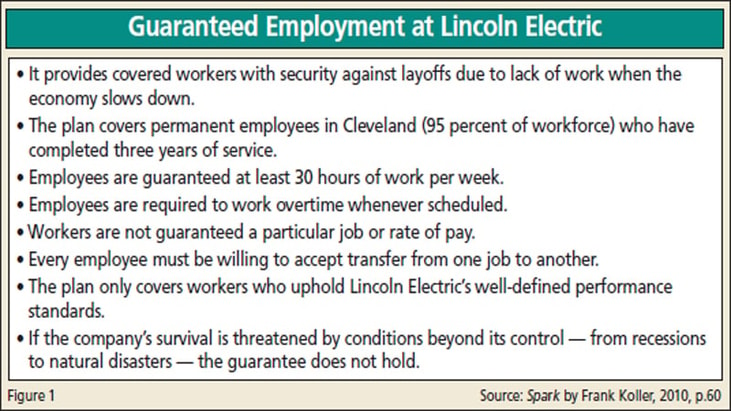American Labor’s Shining Star
Named for the spark produced in the arc welding process developed by the Lincoln Electric Company (LECO) of Cleveland, Ohio, Spark, by author Frank Koller, is a very readable book that outlines the history of this American company. In Spark (Public Affairs: $25.95) Koller, an economic journalist and former correspondent for the Canadian Broadcasting Corporation, focuses on Lincoln Electric’s unique Guaranteed Employment Policy (GEP).
Although a few companies have instituted this policy in the past, LECO is the only large publicly traded company that, for more than 60 years, has not laid off — for lack of work — a permanent employee in Cleveland who meets the firm’s performance standards. This concern for the stability of employee assets in an American corporation is so unique that it was written as a case study in 1975 for Harvard Business School’s MBA students.
John Stropki, Lincoln Electric’s current CEO, states, “I don’t think of this as a social responsibility. I think my philosophy and that of my predecessors is that we can perform in an economically challenging environment, and we can spread that pain in a way that in the long-term will better represent our shareholder’s interests without crucifying our employee base.” Part of the employee retention policy is a bonus plan, which in 2008 (the early stages of the current deep recession) paid out some 32 percent of profits (EBIT Bonus) to employees. For its roughly 3,300 US employees, the average bonus was $28,873, or 61 percent of base earnings in 2008. Since 1955, the average payout was 77 percent. Clearly, in today’s corporate world of “enhanced shareholder value” and executive compensation levels that depend on performance of a company’s stock, guaranteed employment and bonuses at these levels are controversial, to say the least. Compensation for John Stropki in 2008 was some $4.6 million, and adjusting for the higher pay of LECO employees, this was 65 times the average pay for his workers. In contrast, the pay of CEOs in US industry averaged 344 times the average employee pay in that same year. I doubt many American CEOs would accept the LECO ratio.
Lincoln was founded in 1895 by John C. Lincoln, a deeply religious man, who felt that an employee who worked hard needed to be rewarded for his effort. This “welfare capitalism” was in place from the start of the business. Over the years, Lincoln employees have come to trust management’s no lay-off policy, which is now part of the corporate culture. This type of culture does not exist in most US corporations today, and certainly not among Wall Street analysts who demand quarter-byquarter earnings improvement.
... to continue reading you must be subscribed























